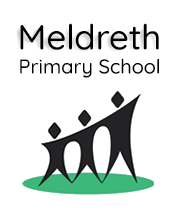In English, by the end of Year 3 children should be able to...
Reading
- Comment on the way characters relate to one another.
- Know which words are essential in a sentence to retain meaning.
- Draw inferences such as inferringncharacters’ feelings, thoughts and motives from their actions.
- Recognise how commas are used to give more meaning.
- Recognise inverted commas
- Recognise:
o plurals
o pronouns and how used
o collective nouns
o adverbs - Explain the difference that the precise choice of adjectives and verbs make.
Writing
- Use conjunctions (when, so, before, after, while, because).
- Use adverbs (e.g. then, next, soon).
- Use prepositions (e.g. before, after, during, in, because of).
- Experiment with adjectives to create impact.
- Correctly use verbs in 1st, 2nd and 3rd person.
- Use perfect form of verbs to mark relationships of time and cause.
- Use inverted commas to punctuate direct speech.
- Group ideas into basic paragraphs.
- Write under headings and sub-headings.
- Write with increasing legibility, consistency and fluency.
In Mathematics, by the end of Year 3 children should be able to...
- Compare & order numbers up to 1000.
- Read & write all numbers to 1000 in digits and words.
- Find 10 or 100 more/less than a given number.
- Count from 0 in multiples of 4, 8, 50 and 100.
- Recall & use multiplication & division facts for 3, 4, 8 tables.
- Recognise place value of any 3-digit number.
- Add and subtract:
o 3-digit nos and ones
o 3-digit nos and tens
o 3-digit nos and hundreds - Add and subtract:numbers with up to 3-digits using written colummethod.
- Estimate and use inverse to check.
- Multiply 2-digit by 1-digit numbers
- Count up/down in tenths.
- Compare and order fractions with same denominator.
- Add and subtract fractions with same denominator.
- Tell the time using 12 and 24 hour clocks; and using Roman numerals.
- Tell time to nearest minute.
- Know the number of days in each month and number of seconds in a minute.
